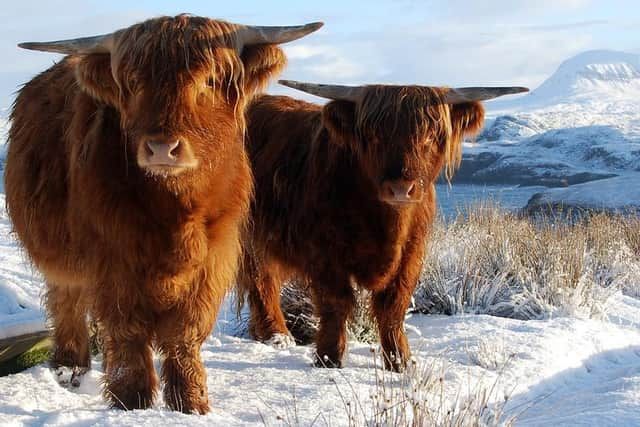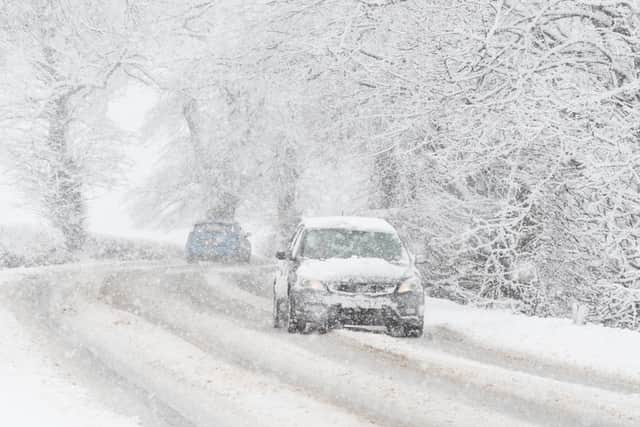Will it snow in February 2020? Scotland long-range weather forecast for the start of the year
and live on Freeview channel 276
With temperatures having reached more than 18C in Sutherland, last year's was one of the mildest Decembers on record.
However, with temperatures dropping as January comes to a close, we could be still be in for a frosty winter.
Advertisement
Hide AdAdvertisement
Hide AdAt the moment, the Met Office is predicting an unsettled end to January, with cold winds, sleet and even a little snow. .


Will Scotland get snow in January this year?
While January has been predominantly snow-free, the Met Office are predicting a wintry end to the month this year, after temperatures dropped sharply on the night of Sunday 26 January.
On Monday 27 January, the North-West of Scotland is likely to be hit with snowy showers, with the rest of Scotland possibly following suit.


Yellow warnings for snow and ice have been put in place for in regions Central Scotland, Tayside and Fife, Grampian, Highlands and Eilean Siar and Strathclyde.
Advertisement
Hide AdAdvertisement
Hide AdOn Monday night, they have then predicted and "Area of rain and sleet moving across parts of Northern Ireland, southern Scotland and northern England, with snow, chiefly over hills" with wintry showers continuing into Tuesday.
The final few days of the month are then set to be cold, windy and wet but should be mostly free of snowfall.
Is it normal to get snow in January?
It is perfectly common for the UK, and especially for Scotland, to experience some snowfall throughout January and February.
According to the Met Office, the UK gets on average 23.7 days of snowfall or sleet each year, with most of it falling on higher ground where temperatures are lower.
Advertisement
Hide AdAdvertisement
Hide AdIn Scotland, the average figure is much higher with snow or sleet falling on 38.1 days on average. The Cairngorms is statistically the snowiest part of the country, with 76.2 days of snow or sleet falling on average each year.
Will Scotland get snow in February this year?
The Met Office UK forecast for Thursday 30 January to Thursday 13 February explains, “Through the end of January and into February, high pressure looks most likely to dominate across the UK, especially in the south.
“Looking further ahead, there seems to be a move to a broadly north/south split. The north and northwest will probably see the wettest and windiest weather whilst further south and southeast, it should be drier and brighter with frost and fog likely overnight.”
However, “During colder, showery interludes, any snow will most likely be over higher ground in the north, but it could fall to lower levels at times,” adds the Met Office.
What's the long-term forecast for February?
Advertisement
Hide AdAdvertisement
Hide AdThe Met Office explains that in February, "Temperatures will remain close to or above average through the period, though will likely fluctuate as frontal systems pass through.
"There could be some colder spells in southern and central areas, should any more prolonged settled spells develop."
Temperatures overall in Scotland could be above average for this time of year, but this is expected to change depending on weather systems.
Temperatures look set to be above close to or above average in the north, but there could be some colder spells.